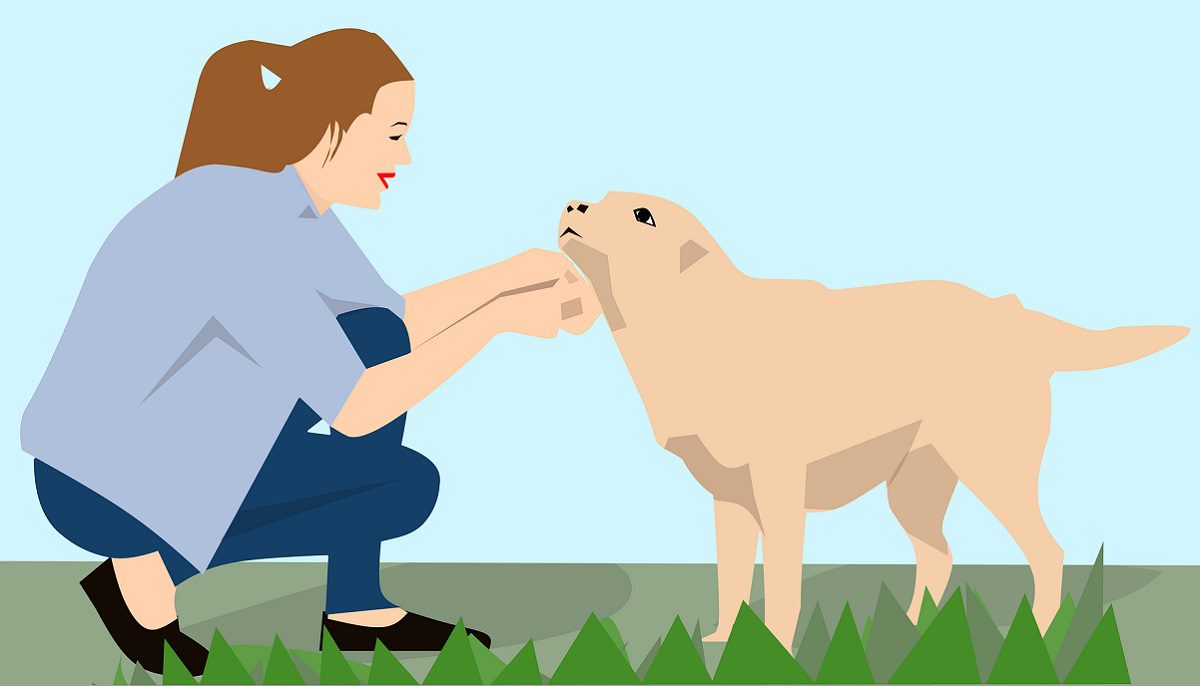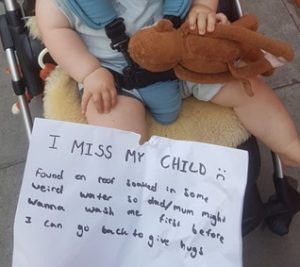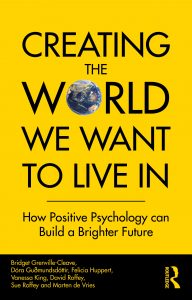Are you a good friend? How lockdown has changed friendships
 Dr Sue Roffey explores how friendships have changed in isolation or confinement, and how we can positively affect our own friendships.
Dr Sue Roffey explores how friendships have changed in isolation or confinement, and how we can positively affect our own friendships.
It has been said that friends are the family you choose, but lockdown has affected many friendships. For many it’s been make or break.
Friendships provide us with reliable alliance, support, validation, and emotional security. They’re highly significant in our lives, contributing more to our wellbeing than we might realise. Keeping them going during lockdown, however, has not been without its challenges.
Friends may fill different roles, so it makes sense to have several, rather than placing high expectations on just one. But what happens when you can’t see them?
How did your friendships hold up in lockdown?
A Nuffield Report Covid 19 Social Study, just published by University College London, indicates that relationships during lockdown often changed. 12% of respondents had experienced a relationship breakdown – although the study did not define what type of relationship that might be. This happened more with younger people (21%) than with those over 60 (5%).
…people who are more vulnerable … are more likely to report worsening friendships and relationships during lockdown.
Looking at this from a different angle, however, it is reassuring that the majority continued to maintain their relationships, with approximately one in five saying that these had got better, especially with neighbours.
Cheryl Lloyd at the Nuffield Foundation said, “This research shows that relationships with neighbours have improved since the COVID-19 crisis, especially for 30–59-year-olds.” While this suggests a resurgence in community spirit, it is cause for concern that the survey also says that “people who are more vulnerable … are more likely to report worsening friendships and relationships during lockdown.” There was a particular concern raised for those who were unable to see people outside the home – friendships need regular communication to thrive.
Several of my own acquaintances reported that, despite not being able to meet face to face, relationships have in many ways become closer, though that has taken more thought and effort. Remembering to call people regularly, sending greeting cards, and, where possible, suggest socially distanced walks, has been the mainstay of these friendships.
In some ways it has been easier to contact people, because they are more likely to be at home, although there is always the risk that you interrupt working hours. Understanding that someone is ‘at work’ although they’re actually at home can be hard to remember.
…socially distanced meetings at the front door or garden gate are better for mental health than a zoom call that ends in renewed silence and isolation.
Some extended family members have been roped in to support home-schooling, so time for friends has been replaced by increased family commitments. One of the findings of a recent Mori poll is that many report improved family-child relationships, as there is more time with each other and less work-home conflict.
Virtual contact, although acknowledged as a valuable tool for connection, has not been without its downside. Some older people reported that it increased a sense of loneliness, especially when coupled with the stress of learning how to manage technology. It would seem that socially distanced meetings at the front door or garden gate are better for mental health than a zoom call that ends in renewed silence and isolation.
The lack of touch has also been hard for many. Safe physical contact promotes oxytocin, the feel-good hormone and a 25 second hug is enough for a significant wellbeing boost. Should we need to lockdown again it is worth considering who might be in your ‘cuddle bubble’.
One other person is all you need – even a pet! Pet hugs definitely count.

Not all friendships are the same
A useful metaphor about friendship is that it is like holding a piece of precious porcelain in the palm of your hand. If you hold it too tightly you will crush it, if you hold it too lightly it may slip through your fingers. Finding that balance is not always easy, and possibly requires more emotional literacy than first appears. Friendships are mutual, so, as in a romantic relationship, both partners need awareness of give and take.
Some friendships are transient, others are life-long over time and distance. Some are deep, others more casual. Research by Sandstrom and Dunn says that daily interactions with those who may be classified as ‘weak ties’ promote both connection and feelings of happiness. We don’t always need deep and meaningful.
Friendships in lockdown have often been conducted over the phone or internet. Whatever the parameters, some things are likely to be critical for maintaining healthy interactions, whether that is in real time or on virtual platforms.
Friendship and finding the right balance
It is likely that one person may require more help and support than the other at any one time. In a strong alliance this is perfectly acceptable. It becomes less so however, if this becomes a consistent pattern. This can stoke resentment over time. And the result that the friendship ceases to be healthy.
Being tuned into what matters for your friend shows them that they matter to you
In a balanced interaction each person shows an interest in the welfare and activities of the other, asking questions that demonstrate that concern. Even better is remembering the content of the last conversation and asking for follow-up information. Being tuned into what matters for your friend shows them that they matter to you. If your memory doesn’t serve you that well just take up a position of curiosity and ask open-ended questions.
A wonderful 94-year-old – initially a friend of my mother’s and now a friend of mine – lives alone and has this skill finely honed. She says nothing much happens in her life, so she lives vicariously through others. You feel she really wants to know what is going on for you, and is consequently a joy to be with. She is my role model, should I ever get to that fine age!
How do you respond to your friends’ good news?
A study by Shelly Gable and colleagues explores how one person responds when the other shares good news about themselves, such as a promotion or winning a prize. There are four options: no interest, such as “oh yeh – what’s for dinner?”; a positive but passive response, as in “oh, that’s good”; a negative retort pointing out all the downsides (or talking immediately about what is happening for them); or a positive, constructive response, conveying genuine enthusiasm and giving credit for the good news. Such as “hey, wow, that’s great, you deserve this”.
The research shows that active constructive responding contributes significantly to the likelihood of a continuing relationship. We may see ourselves primarily as being there for each other in times of trouble, but it is just as important, perhaps even more so, that we are there in times of celebration and show how pleased we are for our friend, however envious we might feel.
How to actually listen so your friend feels heard
The pandemic has had its claws into the most resilient of us. Even if we have not been ill, many have struggled with grief, loss, stress, and anxiety. Friends may be the only real resource for comfort and understanding. But many of us often don’t know how best to respond to someone in crisis.
Ask an open question, together with a caring statement, such as, “you sound at your wits’ end / pretty miserable / what’s going on?” If your friend says they are ‘fine’, just ask again – “no, really, tell me”.
Some people are not comfortable talking about problems or the way they feel, especially men. They need to know it’s OK, you won’t think the worse of them, and that you will keep confidences. Then show you are listening, by giving comments such as, “go on / that’s tough / so sorry to hear this.”
Try to avoid ‘fixing’. Acknowledging how someone is feeling and that their concerns are real for them is validating and helpful. We may see ourselves as a kind person and therefore want to help. But this may lead us to quickly make suggestions and advice about what best to do. Just staying with the emotion that someone is expressing makes them feel their distress is being heard, and is much more useful. It’s easy to say, “If I were you …” – but you are not them. Be a listener, not a problem-solver.
Reconnecting with faltering friendships
Although some friendships during Covid may have become closer, others have faltered, or even failed. Not every friendship is for life, some are situation or time specific, and you may decide that a particular relationship has run its course and have little incentive to revive it. But other friends may be more significant, and you want to reconnect.
In the first instance it is probably best to send a brief but warm message. On-line cards saying ‘Just Thinking of You’, or posting a real card saying, “Saw this and thought of you; wondering how you are”, are gentle reminders of past good times. You could then follow that up with a text saying you were thinking of calling and suggesting a time. If the person is local you could then suggest meeting up on neutral ground, maybe for a coffee.

If they are willing take it from there, a good plan is to show interest in everything that has happened for them since you last spoke. Give them motivation to re-connect with you. It is of course possible that you are now well and truly off their Christmas card list yourself! A rejection always hurts, but unless you are aware of something you need to apologise for, try not to take this too personally. Their life may have simply moved on. Focus on those who really do want to be friends with you.
Building positive communities
Having strong, supportive relationships in our lives is the most significant factor for individual wellbeing; beyond wealth, health, or social status. But friendship is on a wide continuum. From those in our more intimate circle such as family and close friends, to those in our wider circle. Such as colleagues, neighbours, and others in the community, or further afield.
Pulling together in times of crisis is often the upside of disaster
There was a groundswell of community connection in lockdown. Friendliness is good for communities, and ultimately the world we live in. People not only came out of their houses and leaned out of their windows to applaud or bash saucepans to show appreciation of the NHS and keyworkers. There was also an increase in acts of kindness, where neighbours checked in on each other.
Pulling together in times of crisis is often the upside of disaster and a feature of post-traumatic growth. When the chips are down, most people care and contribute. We need each other.
Getting to know someone is the first step towards breaking down barriers and ultimately friendship. Street parties, community gardens, school fairs, even watching the game with others in the pub, are now possible as we move into a post-pandemic life. Not everyone will become the best of mates of course. But friendliness towards each other makes a big difference to how we feel about where we live. It doesn’t need to be anything that takes planning over time. It can be spontaneous and an ‘in the moment’ gesture.
 A couple of weeks ago my one-year-old granddaughter lost her beloved ‘Monkey’ in the local park. She is too young to express any feelings about this. But was undoubtedly very excited when she caught sight of it a week later, hanging on a doorknob in the local high street. The monkey had this sign pinned on it:
A couple of weeks ago my one-year-old granddaughter lost her beloved ‘Monkey’ in the local park. She is too young to express any feelings about this. But was undoubtedly very excited when she caught sight of it a week later, hanging on a doorknob in the local high street. The monkey had this sign pinned on it:
“I MISS MY CHILD: Found on roof in some weird water so dad/mum might wanna wash me first before I can go back to give hugs”
This is a beautiful example of community friendship and kindness – someone taking the time and trouble to think of others. A note of heartfelt thanks was pinned back to the same doorknob.
Random acts of kindness do not just benefit the recipient, they also boost the wellbeing of the giver. The science suggests that kindness is also contagious and can be taught as well as caught.
International Day of Friendship
If we want our children and grandchildren to live in a world where people reach out with friendship rather than abuse, taking action now matters. We saw this recently in the warm, positive messages that were left fon the defaced mural of Marcus Rashford. These young men have become role models for the next generation. They show that care and kindness are not soft options, but the basis of a happier and fairer world.
Most people want love rather than hate in their lives, so perhaps it is time for those positive voices to be louder, and for children to learn the skills and attitudes that enable them to value each other and build healthy relationships, not only in their immediate world but across cultures.
Ten years ago, the United Nations declared Friday 30th July as International Friendship Day. The idea that friendship between peoples, countries, cultures and individuals can inspire peace efforts and build bridges.
This is an annual event now, placing emphasis on involving young people in community activities with different cultures. It promotes international understanding and respect for diversity. The next generation will become future parents, workers, and leaders. What happens now will determine the relationships they have, and the decisions they make for that future.
But young people need the adults in their lives to provide them with opportunities, support, encouragement. They need positive role models to create that better world. It is up to all of us.
 It is time for a post pandemic re-set. Let’s put friendship at the top of the agenda.
It is time for a post pandemic re-set. Let’s put friendship at the top of the agenda.
Sue Roffey is co-author of Creating the World We Want to Live In: How Positive Psychology Can Build a Brighter Future, (2021, Routledge)



 Dr Sue Roffey explores how friendships have changed in isolation or confinement, and how we can positively affect our own friendships.
Dr Sue Roffey explores how friendships have changed in isolation or confinement, and how we can positively affect our own friendships.
Leave a comment